This is a draft copy (an advanced draft, third edit) of part of a short story I wrote to accompany my novels, The Other World.
Stories such as this will not appear in my novels but will appear in a separate set of short story works to accompany or supplement my novels.
In the story the Knight Garend is summoned to a chieftain of the Laėrehl (Lorahn) to discuss the sudden appearance of a creature we would call a dragon, and that the Laėrehl call Nemaljeyhk, or “Copperhead.”
The Laėrehl have never before encountered such a creature; do not know it, or its motives. But having heard of the Knight and his reputation they summon him in to consult upon the creature, and if need be, make a decision upon what to do.
Following the summons the Knight accompanies his escort to the hall of the Laėrehl.
_____________________________________________________
Skłýda-Nemaljeyhk
“Killing Copperhead”
Garend stood before the Konnacht. The rain was almost blinding; cold, bitter, and sharp. The mounts stamped and snorted. Steam rose into the air and the clouds hung thick upon the ground. Neither moved, but then the Konnacht motioned for the foreign man to mount and follow. And so Garend did.
They rode in silence for some unmeasured distance; time being a different affair in the land where diverse worlds do meet at odds. Garend’s escort sat atop his mount as if he had been carved from stone erect. His mount seemed to trudge with heavy effort, but did not slouch or dip to ground with weight of mud or storm.
Garend, by contrast, a man hardened and yet hale through many long campaigns ‘gainst restless foes did nevertheless sink low in upon his horse’s back, bent against the wind and rain, which sometimes drove in sheets, and sometimes drizzled down like mist falling from a boiling pot. But there was no heat in this storm, only an unremitting wash of toil.
Garend’s steed, too, fought hard to slog forwards on, each hoof deep buried by each new plod. The horse seemed to breathe with effort, snorting out each fresh exhalation as if trying to blow away the suspended vapor that lingered on the path. Yet the rain kept on, and where the overhang of huge trees gave shelter, still the mist hung motionless in the air.
By late afternoon the road seemed to widen, formed more solid, and then did part. In its place they came into a clearing, bordered on every side by thick groves of trees, some beautiful, open, tall, and proud, some smaller, gnarled, and thick with branch. The dell upon which they now traversed did seem worked by art, each grimed plod of the mounts upon the seeping earth seemed to plow up dark and comely soils, black and yet speckled with micaled bits of silver and gold. And atop the soil there sat, as if a taělőynd-bird could perch upon a leaf, a shoot of tall and blue-green grass, which when crushed by stride did give off such a fine and perfumed, pungent smell that the beast seemed newly heartened, even above the cold and rain.
The open land was encircled complete by an almost arcane wood and other wilder growth, and was not wide, easily crossed from end to end. But in the center rose a timbered hall, not long completed, so that one could see the joints and new work outstanding from the new formed frame. It was well made, seemly in her draft, pleasing to the eye, and hardily stout of build. The wood was alternating dark and bright, so that sections seemed to glow, and others seemed to sheen with shadow. To the drowned and heavy eye of the enquested man it seemed both to forbid approach, and to invite advance.
Garend paused his mount, and looked askance to his escort, who dismounted and seemed to peer into the hall as if he could gaze through the walls.
“They wait upon us,” the Konnacht said, his voice bereft of any hint of what that truly meant.
Garend turned to look full upon him, but he did not change his mark or measure, but merely remounted smooth and effortlessly. Then they both moved forwards again until they had come near unto the rain-polished black and argent flagstones that paved the path that led to the hall.
There they both dismounted and walked across the flagstone way that led to the doors of bright and milky wood that barred the entrance to within. Garend made to knock at the threshold, but the Konnacht caught his hand in his own to still him. Instead he took a horn, burnished, and trimmed in ashen silver from an unnoticed chain that hung nearby. He blew a note with lingered measure and the doors swung open, as if by some unseen impulse, and the inward firelight and illumined glow did bathe them both with rain-reflected lustre.
Inside a sort of subtle golden casting made the lambence of the place seem worked all by crafted art that seemed unreal to human eye. The fires did burn natural and appeared hot as if true with twisting flame, but the gleam of the light was suffused like the dreaming illuminations dreamt by the blind. The inner workings were clear, and the fittings all trim, the furnishings bright and the walls shaped and painted like wonders. But wherever the folk of the Konnacht sat or stood their shadows seemed hard, and yet did tremble like enfeebled ghosts. And a sort of pall seemed to grow as Garend espied each new thing which seemed to dampen all the gathered glow as if an unfocused dimness ran among the hall that did not blacken, but did oppress with gloom. Garend could not though see any other darkness, and the open, roomless hall seemed as shadowless as the full summer sun at noon.
The Konnacht walked forwards and the soft light seemed to absorb and diffuse him as he strode. Garend made to match him in stride and yet the glow of the space seemed unaccustomed to his manner, and so did seem to stick to his moon painted skin and sheen him like a foreign sweat. They continued on until they came near the far wall, where on the left side of the tapestry covered hall they approached a large and well-made chair of fire-hardened wood, decorated by subtle craft, covered in glyphs and embellished with delicate wares of gem and jewel.
A chief sat upon the seat, his manner brooding, his face fixed and searching.
“Man among us, do you know why you are here? Are you apprised of the nature of your summons?” asked the chief in his chair.
“I am,” replied Garend, without further remark by word or gesture.
“Will you then what is of you best most required?” And the chieftain did stare, and his eyes were fixed and aglow upon the hosted man.
“I will if I may, if such things lay in my power.”
“Do you doubt your arms?” said the chieftain of his kind in a keen, unbending voice.
“I do not, though I have never tested them against such a foe.”
“Do you doubt your will to do this thing?”
“Nay, I doubt not my will, if by that you mean will I falter at the start.”
The chieftain then sat silent, as if turning in his mind some other inquiry of heart he wished to test. But then his brow did knot with reconsideration, and he pursued a different path.
“What then?”
Garend stood silent, uncertain how to answer him. At length though he made reply.
“I know not. I have never done such a thing. I doubt not my arms, if strength of arms can true prevail. I doubt not my will, for my will never fails once turned with real and constant force upon my end… I… perhaps, I doubt my desire. I cannot say more than this for being inexperienced in such affairs, I can say only, in sooth, I doubt, but not enough to turn away.”
The hall was still, but restless in her shadowless gloom. And the chieftain’s eyes did pale like embers fading at the dawn of day.
“So be it.” Then the one upon the throne rose and made a signal for all of the others to gather firm and the doors of the great hall did close and they all made unfastened feast, as if feasts were made of whispered haunts. But Garend watched them all while they ate at uneasy leisure, and he held his tongue unless spoken to, and they likewise held to their own counsel until such time as it was meet. So they feasted, but there was little merriment, and all was quiet among them til they came to contend.
After all of their folk had feasted seven among them took up their jireans with blood-red strings and did play as was their wont, and the music was high and well-made, and yet somber and adrift. And the most skilled among them took from above one of the great hearth-fires the Yolian Harp and hooked it across his wide but slender shoulders and plucked at the shair strings as if he mourned with his hands some unspoken loss.
Then four of their women-folk, after their kind, made chorus, each voice octaved in turn of lead or lament as accord and concord makes true among them. Their song seemed to linger, and then to torse, and turn, running away from itself, and then rejoining in peculiar ways until Garend realized that subtly, almost without notice, they had blended one with another, so that all made the same music, and it was the song of the “Counselor’s Guest.”
‘Asair befirthun ςëlonquar ja-sholestua yaré
Adair nosayth yá-mairstin kiħl,
Megíra lamaŗnosaratĥ
Keikara cönayronǽ laiskõo tiu-khôona nue guare,
In samask yue lahmyst —
Degoli né mae,
Inė samist jyu jihnask
Degolae nìe sae,
Aplu lee-ëfar
Ŷist fareign a’-soon?
Ja-kamos layr ǽblę
Tyrm nahkü-estūhn?
And Garend thought it strange and foreboding that they made that lay, for he had come to tell them what he feared they were least willing to hear.
Then the chief among them, the one of the chair, stood, and all instruments were retired, and the hall fell silent, and there was no sound, and Garend thought that he alone still breathed.
“My people, we come to you today to hear this stranger’s voice, and give weight to his counsel. For he is familiar, after a fashion, with the nature of our concerns. So is as our custom, we will grant him right to speak both first, and last, and we will give credence to his view upon this matter. No matter what he says.” The people listened to their chief and bowed their heads as one in brief acknowledgement of what he spoke. Then the chief turned and spoke to Garend. “Man among us, you are famous even here as being just, and true, and brave. And if the accounts about you are as honest as your mien then we must measure whatever you say here with some solemnity, even if we do so against our own first intentions and against our own fullest wishes… Speak then. And say all that you will, as freely as you would. I am Tairåyrn, chief in this hall, and great of my Ghan.”
“It does not matter how wise or noble in nature you think him. He is still wild, and untamed in nature. I have encountered his kind before in the swamps of fens of my native homeland. They are bred within themselves to kill, and being as they are they are all the less likely to be as you preconceive them. In my lands they are not at home, but being strangers they wander aimless seeking whom they may devour. But I do not conceive that this beast is native or well-disposed to any land, for I think it rather a thing of probable corruption, that whatever it was before it is now by working of things unknown to me a vast and wholly untamed terror. It is Korreupt, and all korreupt are fiercesome, and full of grief.” Then Garend paused as he spoke as if he wished to gather to himself a hoard of potent words by which to well-adorn his speech and thereby truly express the dour visions in his in-most mind.
“The danger of this beast lies not in his thoughts, but in his heart. For he will grind your bones between his jaws, and he will rend your flesh within the thorny and hot cauldron of his dark mawl. He will drink your life’s blood as water and sup marrow from the barrow of bones he has broken among your people. And then, only then, though you may never chance to utter any voice to the despair of your fate, then in your own consideration of your self will you say, ‘The Man was right, and now I and all my folk am murdered because of the pride of our preconceptions.’” And a murmur of shock and discontent ran through the assembly, for the kin of the Laėrehl only speak with due decorum and in a careful and circumspect manner before strangers in their midst, and they were disturbed that anyone would speak to them with such brutal force, and with such rough and unworked plainness. But still others said to themselves, “Can this be actually true, and does sooth proceed for uncouth tongue?”
Then Wyndfuil stepped forward and spoke clearly and true for all his people to hear, for he was unmoved by Garend’s speech, and sought to turn his people back upon their accustomed way. “I do not countenance you Garend upon this matter. For you are merely a thing of war, a man used to sword and battle and conflict. But this creature is not native to your world, as you yourself have thus admitted. You also speak firmly of the Korreupt. But what can you really know of this matter? They are a thing long studied among us, and we know them and their kind well. We know their ways, and his, better than you and we are untroubled. You are strong in arms and dark of word, but you are no prophet fit to pronounce our doom.” And Wyndfuil smiled as he so spake, as if to emphasize the forthright nature of his words, and the people took new heart in their determined course, reassured that what they planned was sure and true. For Wyndfuil was a hunter without peer, and a mighty runner, swift, yet also far moving, and he feared none might catch him in his haste. Among his people his name had become ripe with fame, and he was known as a leader among his people. So he likewise feared no counsel contrary to his aims, and he was sure his words had run as true as he in flight. And so it seemed indeed to be among them that for a long time silence fell like a grey and troubled shroud within the hall while all who were within did well consider both argued sides in quiet thought.
Then Garend answered Wyndfuil, “A prophet, no, you surely speak a’right. I am not for the future; I am man of this day. Yet Gott in Himmel you foolish folk, I have eyes with which to see the doom that does now slither upon you from the ancient ways and in the form of the new-born thing.
You say I am but ignorant of this beast, and of all the other Korreupt, whom you know well. That you have studied such as these, and being well-pleased in your own knowledge of what you have discovered you are confident in both your own strength and in the preparations you have devised form what you know.
Perhaps in this you speak true enough. I have not long sat to watch these creatures. I have studied or pondered on them long. I do not know their most secret and peculiar habits, in this I fully admit to you that your mastery overtakes my own.
Yet what I know is this. I have seen the sorrow made and disgorged by this kind of thing upon all those whom it will make havoc. I have seen the ravage, the wreck, and the rapine. I have seen many folk all torn and bloodied, animals corpsed, consumed, and drained. Have seen the ruin it tends to visit upon all but the most well-defended of homes. I have seen hunters hunted and soldiers scalded, women crushed and children plundered, their parent’s dead and left for worms. You speak true Wyndfuil; I do not know these great beasts in their inmost hearts. And I do not care. But I know what they do. I have studied the remains of their own surest actions. You will be no different when it turns its eye upon you. It will come, and it will come hard and mighty. It will come as confident in its own nature as you are in yours. And it brings you death in fire and sorrow. So, if you are as wise as reputation makes warrant, then think on these things, for wisdom makes a better weapon against doom than the sharpest of arms.” Then Garend broke off and bowed to the people.
“Nevertheless I have sworn my word. I will do what I can to help you in this quest. And when you are all dead, I will bury your scant remains and weep for your great pride. And then I will take up my spear, and my helm and my sword, and I will hunt, and I will kill the Copperhead, the one you call Nemaljeyhk, or he me, and so in either case our tale will go forever unsung. For if he kill me too, then none will ever know what we did, or what we attempted. And if I kill him at the last then what shall it matter? For you will be utterly gone from this world, and to whom will I sing the dirge of your passing?” All again fell silent and many did lean forwards, it seemed, to see if he might speak again. So he did, but only once more.
“Yet still, you may choose wisdom.”
Then Garend did turn from the people and walked from the hall. Having ended his counsel he dismissed further claims. And the night was black, and the wind did moan. For he knew what they would decide.
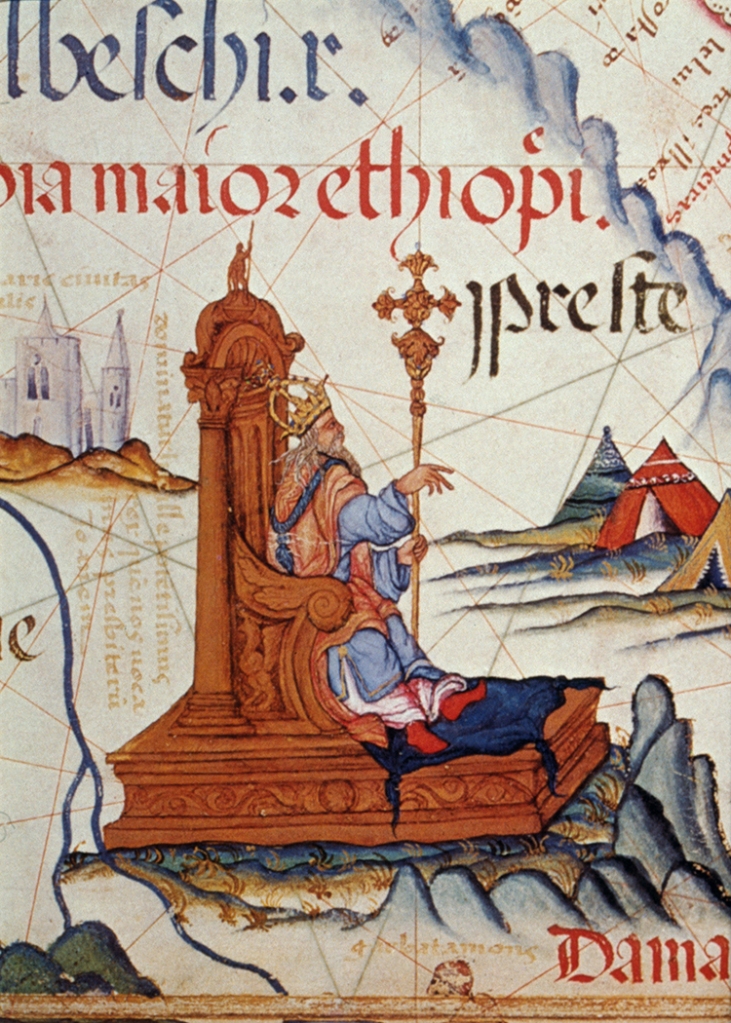

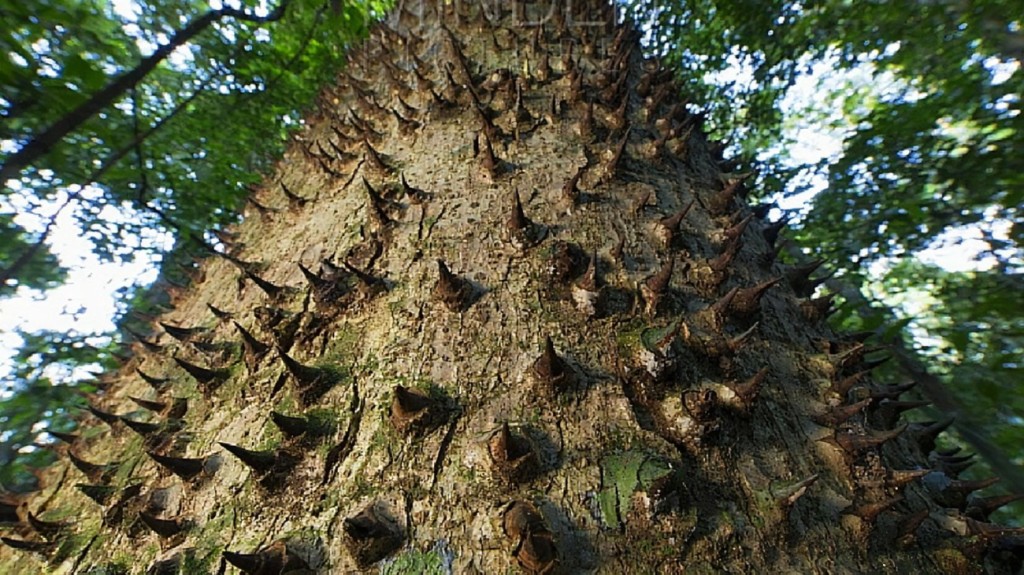

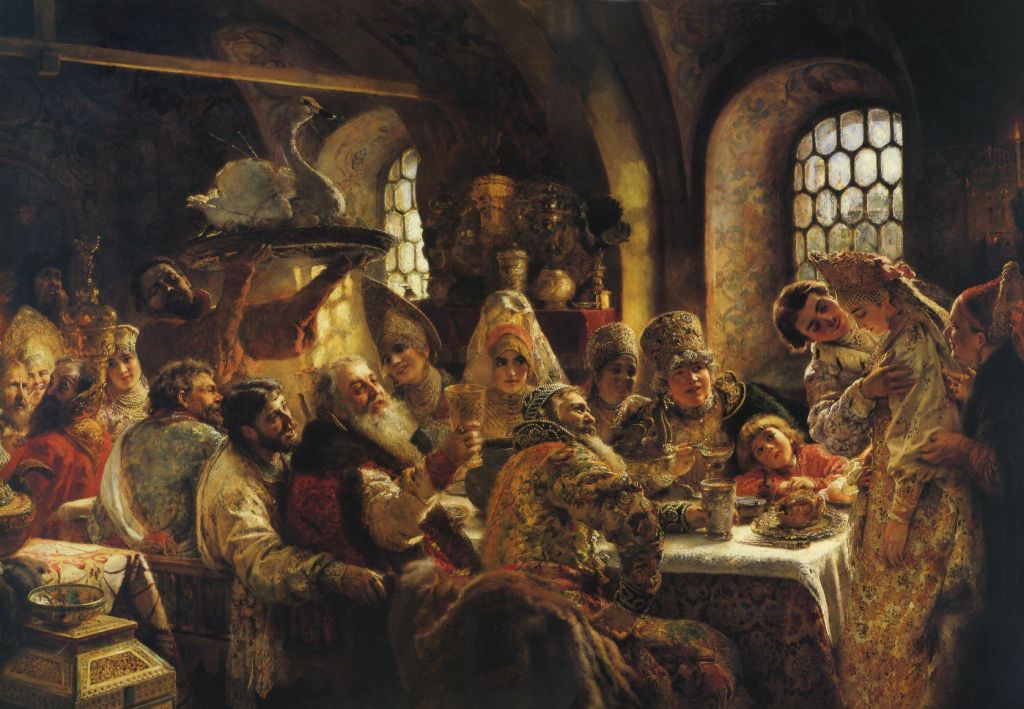




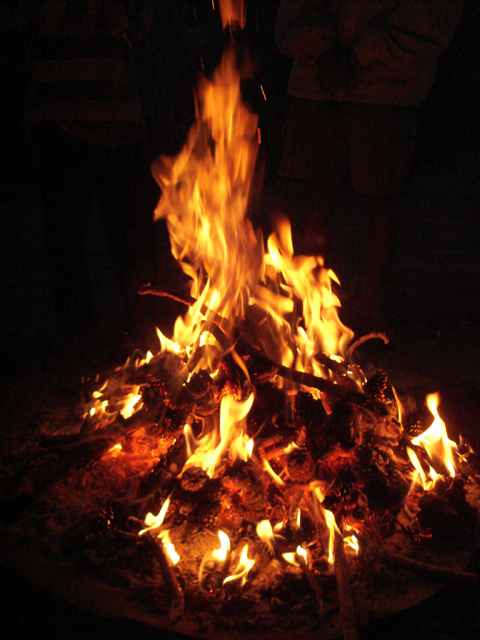



















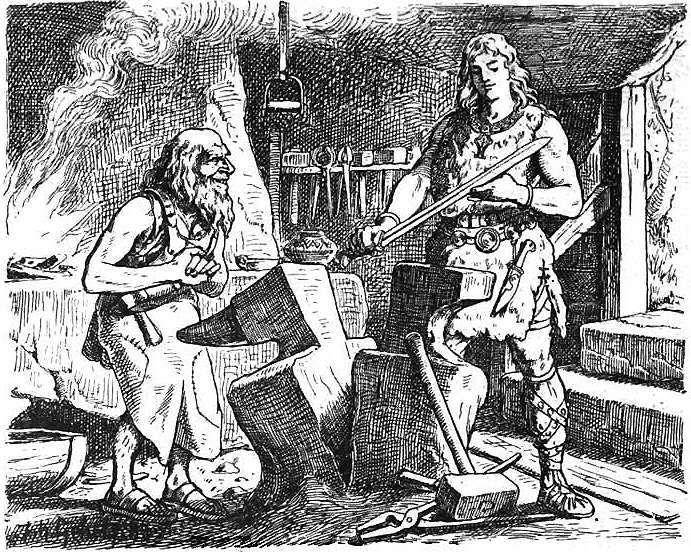
You must be logged in to post a comment.